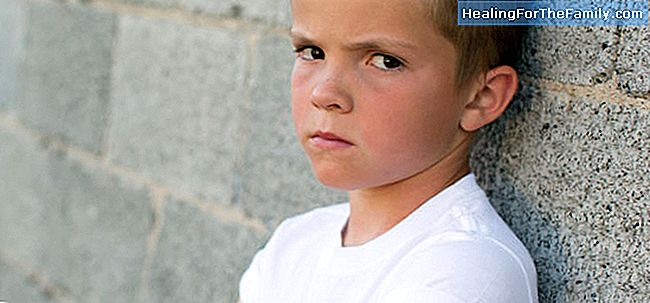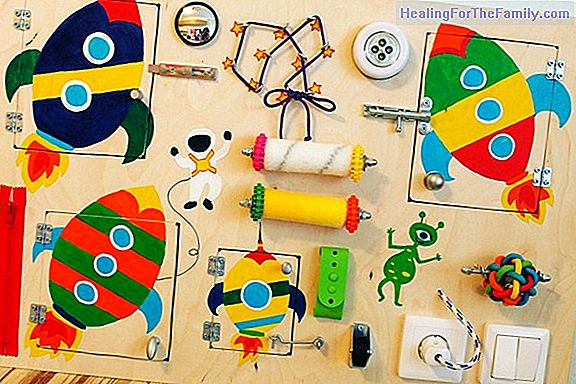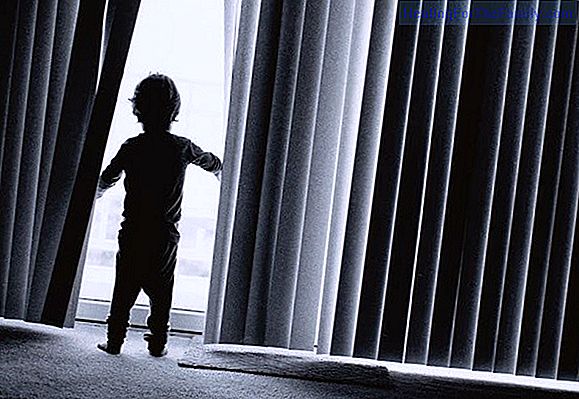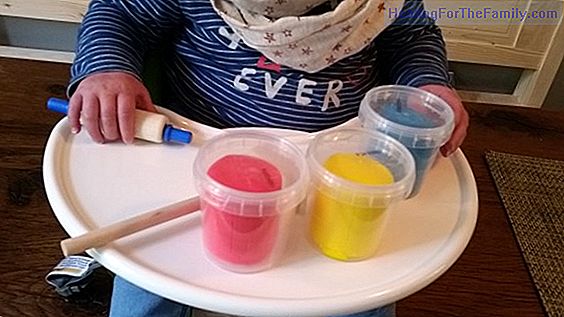Children who do not accept orders
We all know children who do not accept orders and who continually challenge and ignore what we ask of them. They are challenging, difficult children, who test our patience, our ability to "endure", with those who do not use "recipes", and it seems that nothing works ... What do we do with children w
We all know children who do not accept orders and who continually challenge and ignore what we ask of them. They are challenging, difficult children, who test our patience, our ability to "endure", with those who do not use "recipes", and it seems that nothing works ... What do we do with children who do not accept orders?
Challenging behaviors in children

These behaviors can be normal for children according to their stage of development and are managed with appropriate educational and family guidelines, such as establishing rules and limits that are firm and adequate, not punishing everything the child does and rewarding the appropriate behaviors, ignore temper tantrums, etc ...
On some occasions (the least) these challenging behaviors are the result of some type of alteration or syndrome that alters the development of children (for example, impulsive children or with ADHD usually have behavioral problems) , but, removing these cases, the origin of these behaviors may be in the child itself, (such as the child's temperament or character, personality, ability to tolerate frustration) and, on the other hand, another important factor is in the family educational styles, (some in some ineffective or inadequate educational guidelines, very permissive or very authoritarian parents ...).
How children are not accepting orders
Some of the characteristics or traits that can define this type of behavior disorder are:
- A hostile and negativistic behavior that lasts over time.
- He gets angry and discusses with adults.
- Actively defies adults or refuses to meet their demands.
- Annoy other people, (classmates, teachers, friends ...) No - Do not assume their mistakes and blame others for their behavior.
- It is susceptible, spiteful, vengeful ...
In addition, problems also arise in the social and academic field. They behave badly in class, they have problems with classmates, with teachers, caregivers, etc ...
Even so, in order to "diagnose" an opposition child, it is necessary to be examined and evaluated by an expert in psychology in childhood and adolescence .
Oppositionist children can be "passive", that is, they do not obey systematically or, they can be aggressive and hostile to authority figures or partners. In general, they are children who do not accept norms and limits, they challenge and disobey, they ignore the "authority".
The origin, as we said above, is a mixture of temperament and character of the child, inadequate educational guidelines or family and contextual factors of the child.
Basic guidelines in parenting
Some guidelines that we have to take into account in the upbringing of children are:
-
Setting limits to the behaviors of children and teaching them that their actions have consequences, (more or less "nice" for them). - Be consistent and consistent in our behaviors with our children.
- Listen to them and understand that tantrums and anger are normal and even necessary in development, the important thing is to know how to handle them.
- Understand that rules and routines are necessary for children, they give order to the world around them.
- To punish excessively is as harmful to them as to allow them everything, we must seek balance.
In cases in which disobedient and challenging behaviors go beyond what we can consider "normal" in a child, we can face a clinical disorder, oppositional defiant disorder.
Basic guidelines with children who do not accept orders
-
Avoid fights and confrontations with the child because we make them see that the control they have. Ser - Be constant in the consequences of transgressing the rules, but avoiding over punishment and punish according to our degree of frustration or anger that we generate behavior, because we favor that the challenging behavior is maintained. - Reinforce the positive aspects of the behavior of children who do not accept orders.
-
The consequences (all, positive and negative) must be immediate
. The more immediate the consequence of a behavior, the more effective it will be as an intervention that favors the control - Both the father and the mother must give the same answer and must plan the action before possible misconduct.In any case, it is essential that, when the child's behavior exceeds "normality", the situation lasts for a considerable time and we do not take it with him, we go to a professional who guides us and helps us analyze the origin of the problem to redirect it and correct these behaviors on time, since in most cases the expert's intervention is necessary both with families and, sometimes, with the child himself.












